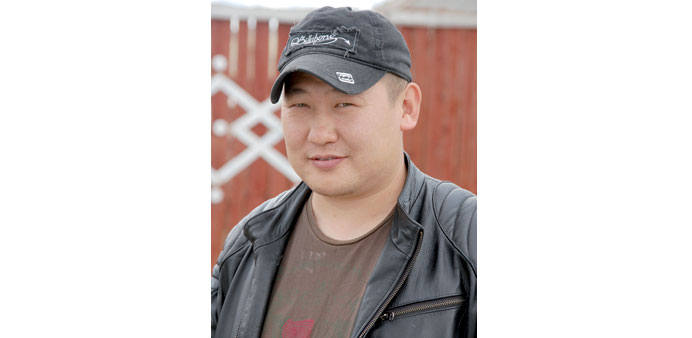“Women are favoured more by the bosses. They are considered to be more adaptable,” says Gantulga.
By Stephan Scheuer
Mongolian driver Amarsaikhan Gantulga shifts down a gear. In the muddy ground of the capital Ulan Bator his car is making slow progress.
Repeatedly, the 34-year-old must steer away from the dilapidated street and make a detour over a pasture. While he is scraping by with odd jobs as a driver or maybe as a guard, Gantulga’s wife is earning good money as the financial director of a hotel.
“In any case, it’s not fair,” he complains. Of course women’s emancipation is important, but the situation has in the meantime become difficult for the men. A change is needed, toward equal gender opportunities — with the men receiving a helping hand.
His situation is typical of that of young men in Mongolia. Now, it’s the women who dominate the universities, with various statistical data putting their share at 60 to 80% of graduates. In the meantime, the figure may even have gone higher. US academic researcher Linda Benson uses the term “reverse gender gap” to describe the situation in Mongolia.
Uyanga Tsogtsaikhan, working for the German educational foundation Friedrich Ebert Stiftung in Ulan Bator, commented: “For a long time many parents thought it very important for their daughters to get an education. “As to the boys, they think that they’ll find work even without a university degree.”
These attitudes have in the meantime begun to change, but for one generation of men, finding decent employment is now a major problem.
Up until 1990 Mongolia was a communist state and under the strong influence of the former Soviet Union. This has put its mark on the country to this day.
The communists glorified equal rights, and in doing so had destroyed a good bit of men’s self-confidence, says a writer on Mongolia, Carl Robinson. “In today’s world women have advanced even further. The boys were told to tend to the animals at home, while the women received the higher education.”
Amarsaikhan parks his car on the side of the road and gets out. He stretches his back and takes some deep breaths. “I don’t think this is so good,” he said. For the time being, he’s okay with his wife earning more money than he does, but he wants things to change soon.
He recently finished his university degree in mechanical engineering, but his job search is going poorly. “Women are favoured more by the bosses. They are considered to be more adaptable,” he says.
A man does not let himself be pushed around so easily. Mongolian Health Minister Natsaq Udval sees things differently. It may be that women dominate in the high schools, but all the same there are many men holding the leadership positions. “Throughout my entire career I have had to push ahead against men,” she said. “(German) Chancellor Angela Merkel is my ideal.”
In June, Udval became the first woman to vie for the presidency, but lost to her male opponent, Tsakhia Elbegdorj. Mongolia expert Julian Dierkes of the University of British Columbia says that despite the quotas, the dominance of men in Mongolian politics has not changed much.
“The quota of female candidates in Ikh Khural for the parliamentary elections has been boosted to 11, from three previously. But this is quite evidently a low figure.”
Dierkes also sees a responsibility of the men for their poorer prospects on the job market. “There are lots of jobs that Mongolian men quite simply won’t consider. These are the ‘Three-D jobs’ — dangerous, dirty, dreary.”
Amarsaikhan Gantulga also defends those friends whose wives bring home the money. “I also cook, and I gladly do it,” he says, believing he can weather the dry stretch a bit longer until he finds a lucrative job.
And he can be there at home for his son. But Gantulga is firmly resolved about one thing: “Later on, my son must absolutely earn more than his wife does.” —DPA

